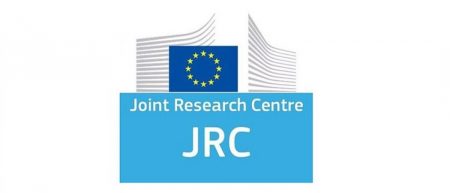JRC is the science and knowledge service of the European Commission and supports EU policies with independent evidence. Education and training activities are an integral part of the JRC work that builds on the organisation’s robust research capacity. In order to enhance the science-policy link, the JRC is offering the collaborative doctoral partnership (CDP) programme to higher education institutions (HEIs/universities) to benefit from a strategic, win-win collaboration with the JRC.
Programme objectives
At the level of the institution – the purpose of CDP is to train a new generation of doctoral students in science and technology, with a specific focus on the science-policy interface. The programme allows participating institutions to gain a better understanding of research needs throughout the policy cycle. At the same CDP provides the JRC with innovative research input and exchange of information with leading institutions in the field. Thus, CDP facilitates strengthening of the collaboration between the JRC and HEIs. This is achieved by co-selection, co-hosting and co-supervision over doctoral students (PhD) between higher education institutions and the JRC.
At the level of the individual PhD student – the CDP programme provides young researchers with a balanced combination of research-related competencies transferable to the interface between policy-making and science. It also enables and supports high quality research for the PhD project by sharing JRC competences, knowledge and facilities, which will lead to the award of a doctoral degree (PhD) conferred by the participating higher education institution.
Programme eligibility
- HEI must originate from an EU Member State or a country associated to the EU Research Programme Horizon 2020.
- HEI must be entitled to award doctoral degrees directly.
- HEI must have administrative autonomy including signing agreements with external partners.
HEIs must fulfill the eligibility criteria (as above) at the time of the closing date for the application and for the duration of the collaboration agreement with the JRC. All applications will be checked for eligibility. Applicants with non-eligible applications will be informed after closure of the call. In case their application is successful, the JRC will sign the CDP collaboration agreement only with the HEI that delivers the PhD degree.
2020 call for proposals
The current call has been opened at the beginning of February, and will accept the application by the deadline of 15th of May 2020. All applications must be submitted on line via the EU Survey application form. If you don’t have an EU Login yet, you can create an account online.
Applications must refer to one of 13 thematic fields. One institution can submit expression of interests for several different thematic fields. The JRC expects to select 2-3 HEIs per a thematic area.
Proposals are usually submitted by the thematic department/institute in question with support by the institution management and the legal representative of the HEI.
CDP evaluation process
Evaluationis performed internally by the JRC staff (one team per a thematic area). HEIs collaboration partners are selected based on the work they do in the thematic field they applied for and how well their work fits with and can contribute to the JRC work and priorities in this field (i.e. evaluation criteria different from Horizon 2020 rules).
Under the CDP programme, proposals are evaluated against:
- Research Reputation
- Research Profile
- PhD Programme
- European/International collaborations of the HEI.
Following successful negotiation and signature of a CDP collaboration agreement with the HEI, topics for PhD students are agreed and calls for PhD positions are being published here.
A collaborative scheme
Collaboration agreements of the CDP programme have an initial duration of 5 years, and can be renewed or extended. The scientific collaboration between the JRC and the HEI/university will result in research, based on fresh ideas and new techniques resulting from PhD projects of common interest. The overall framework of the collaboration will be set in the agreement, a template of which can be found here.
Annex A of the agreement contains the scientific part of the collaboration. It is prepared jointly between the HEI and JRC scientific staff. This also includes co-selection of the topics of the doctoral thesis. Annex B sets the conditions and criteria for selection of the PhD student. The pre-selection will be carried out by the HEI/university and the final selection by the JRC. Annex C determines the Personal Data Protection Rules of the European Commission.
The CDP programme does not involve exchange of money between the JRC and the HEI/university. Each Institution covers the cost of the doctoral candidate according to his/her stay at the respective institution. While staying at the JRC premises, the JRC will cover the costs of the students including salary, necessary training and work-related travel costs (see contract and working conditions of grantholder category 20).
The stay of a doctoral candidate at the JRC will be covered with a single grant-holder category 20 contract (minimum 1 to a maximum of 2 years). PhD students usually commence their studies at the HEI and switch to the JRC after, on average, 9-10 months. Each PhD project will be subjected to an individual work plan prepared and agreed jointly between the JRC and the HEI.
Contact with JRC
In case of questions on the scheme (or issues with EU Survey), applicants are welcome to contact the JRC at JRC-CDP@ec.europa.eu
For more details you can follow FAQs section.



